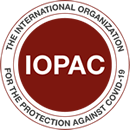Today, more than 20 leading biopharmaceutical companies are announcing the launch of the AMR Action Fund that will invest in developing innovative antibacterial treatments. The Fund aims to bring 2-4 new treatments to patients by 2030. This initiative is a significant step towards addressing the current crisis in antibacterial treatment development.“AMR is a slow tsunami that threatens to undo a century of medical progress” highlighted Dr Tedros, Director General of the WHO at the launch event in Berlin. “I very much welcome this new engagement of the private sector in the development of urgently-needed antibacterial treatments. WHO looks forward to working with the AMR Action Fund to accelerate research to address this public health crisis.”The AMR Action Fund is the result of collaboration among major pharmaceutical companies, the European Investment Bank (EIB), Wellcome Trust and WHO. Since 2018, WHO and the EIB have been advancing an overall concept for an impact investment fund to support the development of antibacterial treatment for public health priorities. This concept was presented and discussed in several international fora including at the Biocom AMR Conference, the World Health Summit in Berlin, and the World AMR Congress in Washington. In 2019, a financial model was developed to assess the risks, success rates and the potential financial return of investment in new antibacterial treatments. WHO then played a catalytic role in bringing together the International Federation of Pharmaceutical Manufacturers & Associations, the EIB and Wellcome Trust, providing critical input on the public health priorities and the investment strategy of the AMR Action Fund.Recent bankruptcies have shown how small antibiotics companies struggle to survive in the current market environment. The process of getting new drugs to market is cost intensive as new antibacterial treatments have to be underpinned with rigorous data that are derived from a series of complex and costly clinical trials to demonstrate their advantages over existing treatment regimens.The AMR Action Fund will invest, through equity or debt, in small companies developing innovative antibacterial treatments that target existing public health priorities. The annual reviews conducted by WHO of both the preclinical and clinical antibiotic pipeline, together with the recently published target product profiles for missing treatments, will provide detailed guidance in this regard. The WHO review of the clinical antibiotic pipeline identifies a number of potential investment candidates. Currently, there are only 32 antibacterial treatments, in clinical development, targeting the WHO’s list of priority pathogens and of these, only 6 fulfil at least one of the innovation criteria as defined by WHO. The latest WHO review of the preclinical pipeline revealed that new and innovative approaches are emerging in the development of antibacterial agents; of the 252 antibacterial agents that were in preclinical development, over one-third were non-traditional products. The next WHO clinical pipeline review will expand to include non-traditional products such as phages and other new innovative approaches to overcome antibacterial resistance. “Investment to ensure promising antibacterial treatments successfully move through to market is a critical step in tackling AMR,” said Dr Haileyesus Getahun, Director of the Department of Global Coordination and Partnership on AMR at WHO. ‘’WHO stands ready to support the AMR Action Fund in its focus on public health priorities and innovative new antibacterial treatments.’’ While the AMR Action Fund is an important step in addressing the challenge of AMR, it will only partly compensate for the rapidly diminishing flow of investment from the private sector and from public funding. Partnerships like the AMR Action Fund, CARB-X and the Global Antibiotic Research and Development Partnership (GARDP), bring together relevant stakeholders and play a crucial synergistic role in improving the current pipeline of antibacterial treatments. GARDP, a foundation that was set up by WHO and the Drugs for Neglected Diseases initiative (DNDi) to develop new treatments for drug-resistant infections posing the greatest threat to public health, is playing an important role in mobilizing more funding from both public and private sectors for public health priorities. GARDP recently partnered with a small company on an innovative beta-lactamase inhibitor that works against serious multidrug resistant bacterial infections. The launch of the AMR Action Fund represents an important step towards revitalizing antibacterial drug development and also creates the opportunity to address the much needed reforms of the current procurement and reimbursement systems for new treatments.
Addressing the crisis in antibiotic development
More from All WHO newsMore posts in All WHO news »
